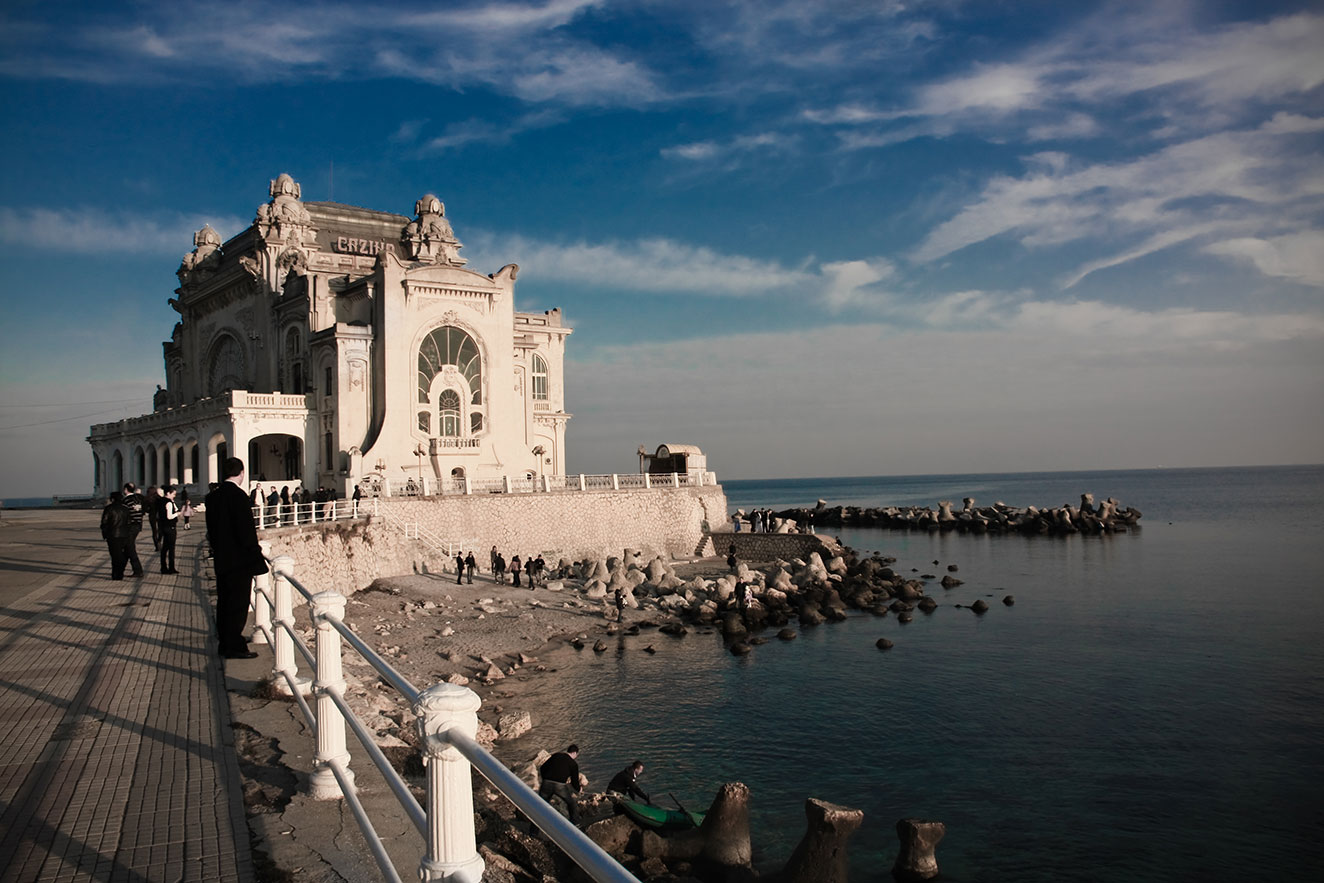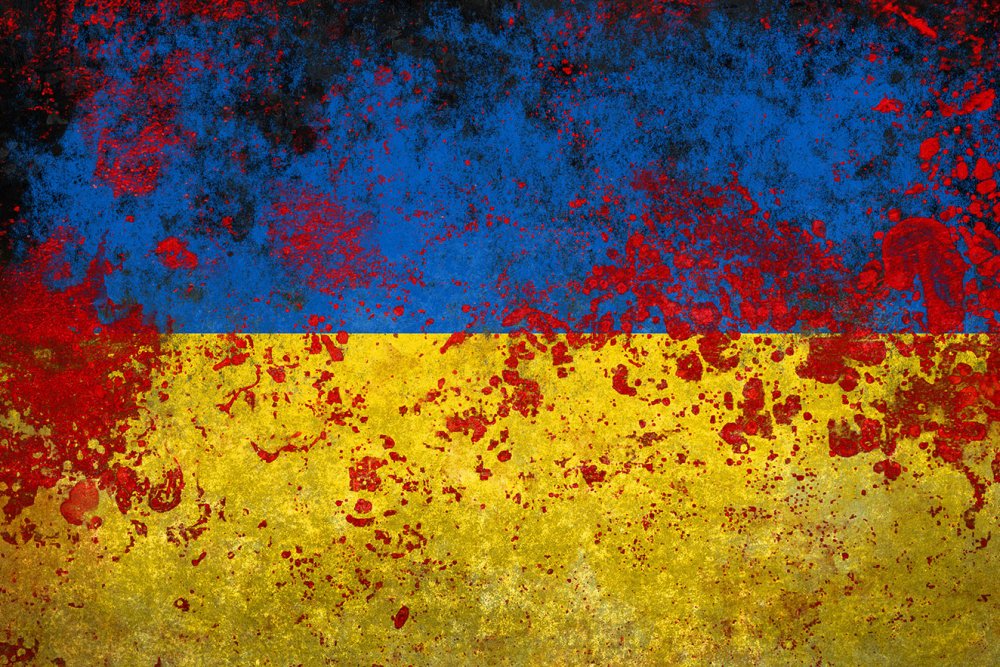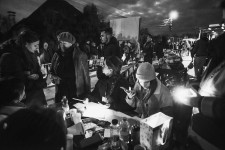Several Ukrainian journalists fled the war in Romania and managed to continue their work in the newsrooms here, thanks to their Romanian colleagues who co-opted them into their teams. One such newsroom is Context.ro, a platform founded in 2022 by journalists Attila Biro, Cristian Andrei Leonte and the British journalist Stephen McGrath, a team that has been running a project for refugee journalists since the beginning of the war.
Yana Skoryna is 30 years old, a journalist and she arrived in Romania after several stopovers. Born in Lugansk, Yana has known the war for many years. While her family stayed in the Donbas region, Yana went to university in Crimea.
The greed of imperialist Russia followed her all the time, so after graduating from university, she got a degree that neither she nor her classmates wanted: it was issued by the Russian state, which had meanwhile annexed Crimea. She is ashamed of the paper that says she graduated from a Russian institution and never showed it when she looked for a job, so her CV was her graduation diploma.
After college, things settled down for Yana and her family, who followed her to Kiev. Cheerful, very sociable and bent on finding the good in people first, Yana worked for 10 years in entertainment television, listening to people's stories, recording interviews with and about people, laughing, having fun and turning her job into a constant search for the positive, funny, good.

The carousel of positive emotions at work was turned upside down one day when Yana was away from Ukraine and Russian troops entered Bucea, where her mother lived. The Russians slaughtered the population of the small town close to Kiev, and photos of the hacked, bound and rotting bodies of civilians scattered in the streets shook the world. The horrors committed by the Russians have adorned Putin's Kremlin with accusations of war crimes, massacres and, at times, genocide from dozens of official desks around the world, and led to the opening of an investigation at the International Criminal Tribunal in The Hague for crimes against humanity.
Yana was safe, but devastated by the inferno she couldn't get her mother out of, nor her cat. For two weeks, the duration of the Russian Urge in Bucea, Yana's mother emerged from the basement where she had taken shelter for only a few seconds each day, and only to reassure her daughter that she was still alive. Every day, the child thought it was the last time she would hear her mother. Heartbreaking, frightening and a miracle, that's how Yana describes the woman's time in Bucea, when she held on and finally managed to save herself after the Ukrainians liberated the town.
The Russian invasion trapped Yana and her boyfriend abroad, so for half a year they moved from country to country, from Germany to Croatia, then to Albania and Montenegro, believing the war would end quickly and they would return home. Like them, millions of other Ukrainians are waiting with their luggage at the door for the same thing, and are struggling to accept the idea of integrating into another society. They fear that as they blend into their host country, the hope that they can still have a 'home' in Ukraine will dissolve.
"We are not refugees"
Yana does not consider herself a refugee and believes that using this term for her compatriots who have fled the war is wrong because, she says, refugee means that you cannot return to your country, whereas Ukrainians are actually granted temporary protection, which gives them a different status from refugees. In fact, according to the DEX, a refugee is a person who retreats from an occupied territory, flees danger and seeks support or shelter elsewhere. She is offended and hurt when she is called a refugee because this would imply that she cannot return home.
Yana says she "bows a deep bow" to volunteers and all those who help her country and those seeking shelter from the war, but it irritates her when she sometimes hears that Romanians "got tired" of helping Ukraine or Ukrainians because, Yana says, her country has become "the shield of Europe".
In August 2022, Yana decided to stay in Romania, to work and wait here for the end of the war, even though she knew nothing else about this country except Transylvania and Dracula. She chose pragmatically, because she is next door to the country where her mother and friends are, so she can visit them quickly when possible.

The " like-mindedness" helped Yana to quickly find similarities between her country and ours for emotional comfort, and the thick wall between the completely different alphabets, scripts and languages was broken down by the "English that everyone speaks in Romania, compared to other countries". He thinks Romania's piece of the Carpathians is more "majestic" than their piece in Ukraine, the landscapes are "shockingly beautiful" and the mountains have become "their strength".
Bucharest reminds her of Kiev, sometimes of Kharkov and sometimes of Odessa, even though it is landlocked. The coffee cult in Romania, a remnant of the Ottoman Empire that stretched half a millennium to the Danube, seems cool and not often seen elsewhere. People are more relaxed in Bucharest and "don't rush anywhere" compared to Kiev, Yana believes.
The high level of pollution in Bucharest, the pet excrements left everywhere and the garbage lying on the sidewalks, however, overshadow the journalist's image of a European Bucharest: "You don't see that in Kiev anymore", she says.
Wood and old buildings
Yana became a journalist by following her childhood dream, which became reality once the decisions were hers. The only thing that has changed in her job, admittedly radically, is that she no longer makes entertainment programmes in Ukraine, but writes about the war in Romania.
A Facebook tag by photojournalist Andrei Pungovschi led her to journalist Attila Biro, founder of Context.ro, a media platform that supports Ukrainian refugee journalists in Romania. They can still do their job, reporting on war crimes committed by Putin's army in Ukraine.
When she joined the Context team, Yana's biggest challenge was to pick up her shattered morale and start from scratch. No one trained her to report on the war in her country, but it's the best thing she can do for her homeland and its people.

She says that at first it was unbearably painful to read the news flow flooding in from her country and she couldn't mentally process the horrors from her native country, where she had been a student, where she had fun and partied with friends or where she had gone on her last vacation before the invasion.
Then she began to brood over her grief thinking that if she could be the one to suck up the pain, and not the other way around, then she would be able to help her country with the stories she published. She was almost always somatizing and refraining from vomiting, overwhelmed by the news flow of how Russia's butchery was beginning to operate systematically, genocidally, like a tedious Kremlin routine, insatiable with Ukrainian blood spilled from children, young people and grandparents.
Yana has quickly integrated into the Context team and even if they don't see each other all the time, they are always in touch. She is grateful to her colleagues and their project for Ukrainian journalists for "giving her a voice" to talk about the horrors of war and the demolition of her country.
The journalist wants to take part in the reconstruction of Ukraine and, among other things, she is thinking of taking her hobby of restoration out of her sleeve: in addition to reporting for the press, Yana wants, if necessary, to open a furniture restoration workshop in Bucharest, an old passion of hers.

















